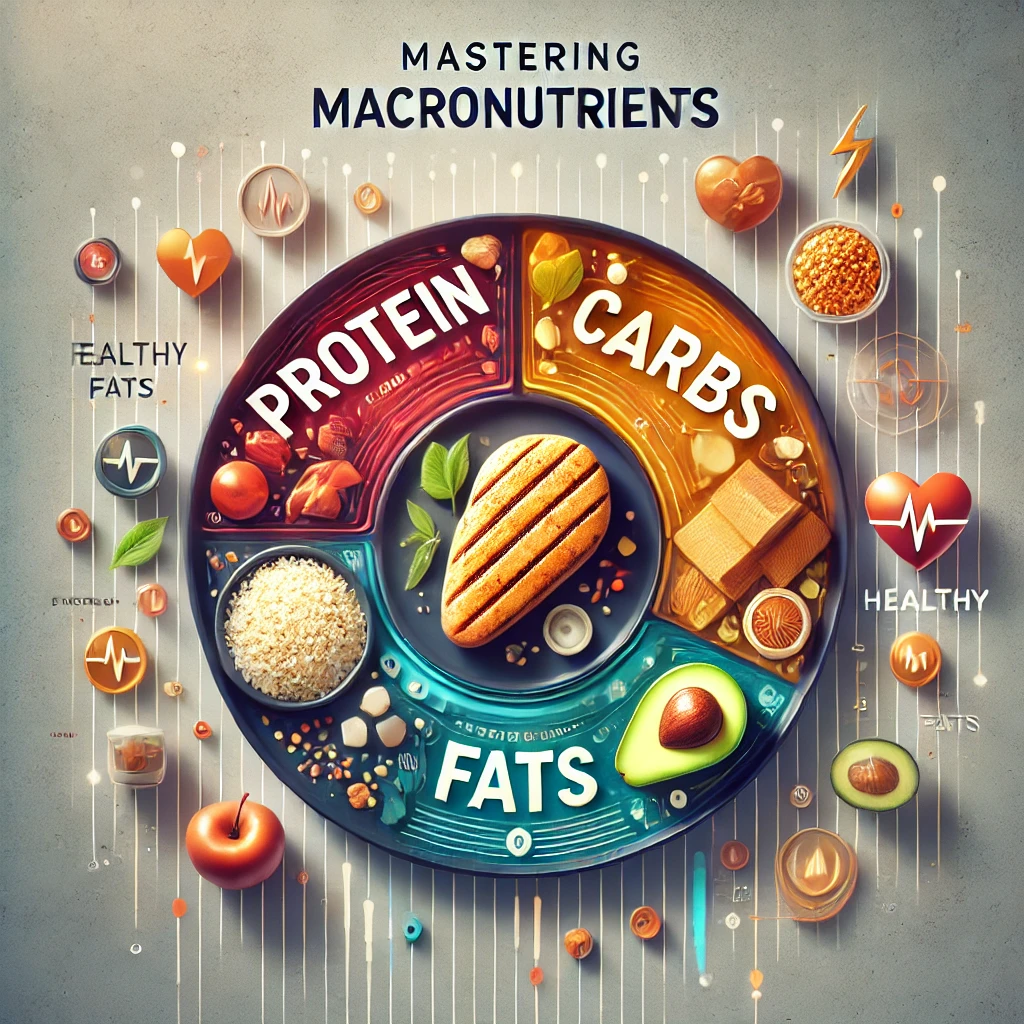Introduction to Healthy Weight Loss
Achieving a healthy weight loss is more than just shedding pounds—it’s about improving overall well-being. It’s easy to get caught up in flashy advertisements promoting rapid weight loss programs, but healthy weight loss is sustainable, balanced, and, most importantly, safe. Let’s dive into why this approach matters.
Table of Contents
Why Healthy Weight Loss Matters
Healthy weight loss reduces the risk of chronic diseases such as diabetes, heart conditions, and hypertension. Beyond the physical, it boosts mental health, increasing confidence and energy levels. However, crash diets and extreme methods often lead to temporary results, leaving people frustrated and prone to regaining the weight.
The Difference Between Healthy and Rapid Weight Loss
Rapid weight loss usually involves drastic calorie cuts or intense exercise regimens that are not sustainable. In contrast, healthy weight loss emphasizes gradual progress through manageable lifestyle changes. Think of it like building a house—strong foundations ensure the structure lasts.
The Science Behind Weight Loss

Understanding how your body works can help you make informed decisions about your weight loss journey.
Caloric Deficit: The Foundation of Weight Loss
Weight loss occurs when you burn more calories than you consume—a concept known as a caloric deficit. This doesn’t mean starving yourself; rather, it’s about making smarter choices like swapping processed snacks for nutrient-dense alternatives.
Metabolism and Its Role in Weight Management
Your metabolism determines how efficiently your body converts food into energy. Factors like age, genetics, and muscle mass influence your metabolic rate. Incorporating strength training can boost metabolism, helping you burn calories even at rest.
Hormones and Their Impact on Weight Loss
Hormones like insulin, cortisol, and leptin play a pivotal role in hunger, fat storage, and energy levels. For instance, chronic stress elevates cortisol levels, leading to cravings for unhealthy foods. Learning to manage stress can positively impact your weight loss goals.
Setting Realistic Weight Loss Goals
Without realistic goals, you risk setting yourself up for disappointment or harm.
What Does a Healthy Weight Loss Look Like?
Experts recommend losing 1-2 pounds per week. While this may seem slow, it’s a sustainable rate that allows your body to adjust without losing muscle mass or nutrients.
Importance of Individualized Goals
Every individual is unique. Factors such as age, activity level, and starting weight play a role in determining realistic goals. Personalization ensures the plan aligns with your needs and lifestyle.
Red Flags for Unrealistic Expectations
Beware of programs that promise drastic weight loss in days. They often rely on unhealthy methods like extreme calorie restriction or eliminating entire food groups, which can lead to nutrient deficiencies and fatigue.
The Role of Nutrition in Healthy Weight Loss

What you eat is just as important as how much you eat.
Understanding Macronutrients and Micronutrients
Balancing carbohydrates, proteins, and fats ensures your body gets the energy it needs. Micronutrients like vitamins and minerals are equally crucial for optimal body functions. Aim for variety in your meals to cover all nutritional bases.
The Role of Hydration in Weight Management
Staying hydrated aids digestion, reduces bloating, and helps control hunger. Sometimes, thirst is mistaken for hunger, leading to unnecessary snacking. Drink water consistently throughout the day.
Avoiding Fad Diets: The Dangers of Quick Fixes
Fad diets may deliver quick results, but they are rarely sustainable. Diets like keto or juice cleanses can deprive your body of essential nutrients, leaving you fatigued and irritable. Instead, focus on balance and moderation.
Incorporating Exercise for Sustainable Results

Exercise is a powerful ally in your weight loss journey, but it’s not the sole solution.
Benefits of Combining Cardio and Strength Training
Cardio burns calories quickly, while strength training builds muscle, increasing your resting metabolic rate. Together, they create a well-rounded fitness routine that promotes weight loss and overall health.
Finding Activities You Enjoy
Not a fan of the gym? That’s okay! Dancing, hiking, swimming, or even playing a sport you love can make exercise feel less like a chore and more like a hobby.
How Much Exercise Is Enough?
The CDC recommends at least 150 minutes of moderate-intensity exercise per week. Split this into manageable chunks—like 30 minutes a day, five times a week—and you’re good to go!
The Psychological Aspect of Weight Loss
Weight loss isn’t just a physical journey; it’s deeply tied to your mental and emotional well-being.
Overcoming Emotional Eating
Many of us turn to food for comfort when stressed, sad, or bored. Emotional eating can sabotage your weight loss goals. Instead, identify your triggers and find healthier coping mechanisms, like journaling, deep breathing, or engaging in hobbies.
Building a Healthy Relationship with Food
It’s important to view food as fuel, not as an enemy. Avoid labeling foods as “good” or “bad,” which can create guilt. A balanced approach allows you to enjoy treats in moderation while prioritizing nutrient-rich meals.
The Role of Support Systems in Weight Loss
Having a support system can significantly impact your success. Whether it’s friends, family, or a weight loss group, sharing your journey helps keep you motivated and accountable. Don’t hesitate to seek professional help from therapists or coaches if needed.
Tracking Progress the Healthy Way
How you measure success can make or break your motivation.
Measuring Beyond the Scale
The number on the scale is just one indicator of progress. Monitor other metrics like energy levels, sleep quality, and how your clothes fit. Progress photos can also offer a visual representation of your hard work.
Celebrating Non-Scale Victories
Did you run a mile without stopping? Cook a healthy meal from scratch? These achievements deserve celebration. Acknowledge every win, big or small, to stay inspired.
When to Reevaluate Your Goals
Sometimes, goals need adjustment. If you’re not seeing progress despite consistent effort, reassess your plan. Consulting a professional can provide insights into potential areas of improvement, such as dietary tweaks or exercise modifications.
Common Challenges in Weight Loss

Weight loss is rarely a smooth ride—challenges are part of the process.
Plateaus and How to Overcome Them
Weight loss plateaus are normal as your body adapts to new habits. To break through, consider changing your workout routine, reassessing calorie intake, or incorporating more strength training.
Dealing with Setbacks
Life happens—holidays, stress, or busy schedules can derail your progress. Instead of beating yourself up, focus on getting back on track. Remember, consistency over time matters more than perfection.
Avoiding Comparison Traps
Your journey is unique. Comparing yourself to others can breed discouragement. Instead, celebrate your progress and focus on your personal goals.
Long-Term Maintenance of a Healthy Weight
Reaching your weight loss goal is just the beginning—maintenance requires ongoing effort.
Transitioning from Weight Loss to Maintenance
Once you hit your target, gradually increase your calorie intake to a maintenance level. This prevents regaining weight and allows your body to adjust.
The Importance of Consistency Over Perfection
Long-term success isn’t about never slipping up—it’s about staying consistent with healthy habits. Focus on the 80/20 rule: eating nutritious meals 80% of the time and allowing flexibility for indulgences.
Lifestyle Changes vs. Temporary Fixes
Quick fixes may help you lose weight, but sustainable changes are key to keeping it off. Make healthy eating and regular exercise a permanent part of your lifestyle.
Myths About Healthy Weight Loss
There’s no shortage of misinformation when it comes to losing weight.
Debunking Common Misconceptions
One common myth is that eating late at night causes weight gain. What matters more is your total calorie intake throughout the day, not when you consume them. Similarly, skipping meals isn’t an effective way to lose weight—it often leads to overeating later.
The Truth About Spot Reduction
No amount of crunches will give you a flat stomach if your overall body fat percentage is high. Fat loss occurs uniformly, not in isolated areas.
Why “No Pain, No Gain” Isn’t Always True
Exercise doesn’t have to leave you sore to be effective. Overexertion can lead to burnout or injury. Listen to your body and prioritize sustainability over intensity.
The Role of Professional Guidance
Sometimes, expert advice is the boost you need.
When to Consult a Dietitian or Trainer
If you’re struggling to lose weight or have specific dietary needs, a registered dietitian can create a personalized plan. Similarly, a fitness trainer can help you develop a workout routine that aligns with your goals.
Medical Conditions and Weight Loss
Conditions like hypothyroidism or PCOS can make weight loss more challenging. A healthcare provider can offer tailored advice and, if necessary, recommend treatments to support your efforts.
Importance of Evidence-Based Advice
Not all advice is created equal. Stick to credible sources and avoid trends lacking scientific backing. Evidence-based strategies are safer and more effective.
The Impact of Sleep on Weight Loss
Quality sleep is often overlooked but plays a vital role in weight management.
How Sleep Affects Hunger Hormones
Lack of sleep disrupts hunger-regulating hormones like ghrelin and leptin, leading to increased appetite and cravings. Prioritizing rest can help you make better food choices.
Tips for Improving Sleep Quality
Establish a bedtime routine, avoid screens before bed, and create a calming sleep environment. Consistent sleep schedules also improve overall rest quality.
Balancing Rest and Activity
Overtraining can hinder progress by causing fatigue and hormonal imbalances. Balance workouts with adequate recovery time for optimal results.
Staying Motivated on Your Weight Loss Journey
Motivation isn’t constant—it requires effort to maintain.
Setting Mini Goals
Break your big goal into smaller milestones, like losing 5 pounds or completing a fitness challenge. Achieving these keeps you motivated and focused.
Rewarding Yourself (Without Food)
Celebrate achievements with non-food rewards, such as new workout gear, a spa day, or a fun outing. These rewards reinforce positive behavior.
Keeping Your “Why” Front and Center
Why did you start this journey? Whether it’s improving health, gaining confidence, or being active with your kids, keeping your reason in mind helps you stay on track.
Healthy Weight Loss for Different Life Stages
Different life stages call for unique approaches to weight loss.
Weight Loss During Adolescence
Teens should focus on building healthy habits rather than strict diets. Balanced meals and regular physical activity are key to supporting growth and development.
Considerations for Weight Loss Post-Pregnancy
New moms need to prioritize recovery and energy. A gradual approach to weight loss, focusing on nutrient-dense foods and gentle exercise, is ideal.
Weight Management for Seniors
For older adults, maintaining muscle mass is critical. Combine strength training with a protein-rich diet to support both weight loss and overall health.
Conclusion
Healthy weight loss is a journey, not a destination. It’s about creating sustainable habits that prioritize your well-being over a number on the scale. Remember, slow and steady wins the race. Take small steps, be patient, and celebrate your progress.
Frequently Asked Questions
What is considered a healthy rate of weight loss per week?
Experts recommend losing 1-2 pounds per week for sustainable results.
How do I handle cravings while trying to lose weight?
Address cravings by drinking water, eating high-protein snacks, or distracting yourself with an activity.
Can I lose weight without exercising?
Yes, but combining diet changes with exercise improves results and boosts overall health.
What is the role of genetics in weight loss?
Genetics influence factors like metabolism and body composition but don’t determine your ability to lose weight.
How do I maintain my weight after reaching my goal?
Focus on consistent habits, including balanced eating and regular physical activity.









